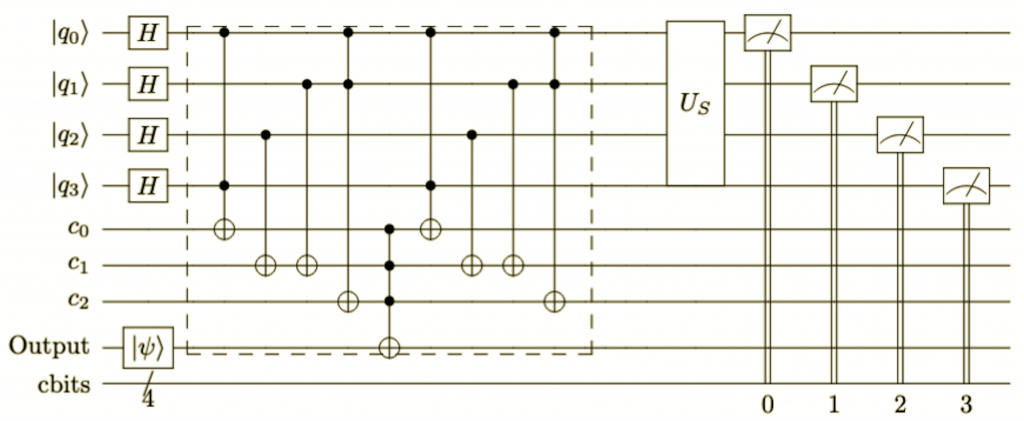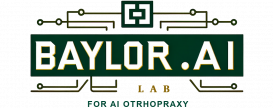Khanal, B., Orduz, J., Rivas, P. et al. Supercomputing leverages quantum machine learning and Grover’s algorithm. J Supercomput 79, 6918–6940 (2023). https://doi.org/10.1007/s11227-022-04923-4. [ bib | .pdf ]
Quantum computing, a field that has drawn significant attention recently, promises to revolutionize how we approach computational problems. In Bikram Khanal’s paper titled “Supercomputing leverages quantum machine learning and Grover’s algorithm,” we delve deep into the intricacies of quantum computing, with a particular focus on Grover’s algorithm and its potential applications in quantum machine learning. This journal article is an extended version of an earlier conference paper found here.
Understanding Quantum Computing and Grover’s Algorithm
At the heart of our paper is a comprehensive discussion of the basics of quantum computing. We shed light on Grover’s quantum algorithm, which promises faster search capabilities compared to classical algorithms. Our team conducted an experiment simulating classical logical circulation by exploiting the power of amplitude amplification, a core principle behind Grover’s algorithm.
The Quantum Advantage
One of the primary takeaways from our research is the potential advantage quantum computing and quantum machine learning can offer over classical counterparts. By harnessing the efficiency of quantum computers, we can significantly reduce the reliance on supercomputing power for executing complex programs. This is particularly relevant for problems that pose challenges for classical computing methods.
Exploring Quantum Machine Learning
Our paper also delves into two promising approaches in quantum machine learning:
- Variational Quantum Circuits: These are quantum circuits that can be tuned variably, allowing for optimization in quantum computations.
- Kernel-based Quantum Machine Learning: This approach leverages the concept of kernels, which are used in classical machine learning for various tasks, and adapts them for quantum computations.
We believe the intersection of quantum algorithms and machine learning is ripe for exploration. While there’s a lot of potential, it’s also a domain that requires rigorous research to unearth solutions that can genuinely outperform classical machine learning methods. Kernel-based approaches, in particular, hold significant promise in the near future of quantum machine learning and supercomputing.
Looking Ahead
Our journey into the world of quantum computing doesn’t end here. We have charted out an exciting roadmap for our future research:
- Real-world Data Testing: We aim to test our algorithm using actual data from classical circuits. This will involve parsing the circuit and feeding it into our algorithm.
- Optimizing Computational Complexity: Our goal is to enhance the efficiency of our approach, especially when compared to classical methods.
- Leveraging Grover’s Algorithm for Machine Learning: We believe many classification problems in machine learning can be reframed as search problems, making them ideal candidates for Grover’s algorithm.
- Kernel Methods and Grover’s Algorithm: In our future work, we plan to reformulate machine learning problems using kernel methods, aiming to solve them efficiently as search problems using Grover’s algorithm.
Finally, we are at the cusp of some groundbreaking discoveries that can redefine the supercomputing landscape. We invite readers and fellow researchers to join us on this exciting journey and keep a close watch on the advancements in this domain. Read the paper here [ bib | .pdf ].


